Books on consciousness
A list of books relating to the hard problem of consciousness. Regularly updated cos I keep finding new stuff all the time.
A list of books relating to the hard problem of consciousness. Regularly updated cos I keep finding new stuff all the time.
2010
 Mario Bunge
Mario Bunge
Matter and Mind: A Philosophical Inquiry
(Springer 2010)
Bunge argues that modern natural science has tacitly adopted the materialist view that the universe is composed exclusively of concrete things and that the social and biosocial sciences should follow suit. This is not to deny the existence of mental processes. Consciousness, qualia, feelings, and even free will, are real and within the reach of scientific research. See Springer | Amazon | Google
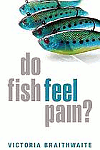 Victoria Braithwaite
Victoria Braithwaite
Do Fish Feel Pain?
(Oxford 2010)
Biologist Victoria Braithwaite explores the question of fish pain and fish suffering, explaining what science can now tell us about fish behavior, and examining the related ethical questions about how we should treat these animals. She concludes that scientific evidence suggests that we should widen to fish the protection currently given to birds and animals. See Amazon | Google
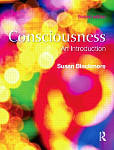 Susan Blackmore
Susan Blackmore
Consciousness: An Introduction
(Routledge 2010, second edition)
Blackmore’s ground-breaking 2003 textbook was the first to bring together all the major theories of consciousness, from those based on neuroscience to quantum theory to Eastern philosophy. This new edition includes the latest developments in neuroscience, brain-scanning techniques, artificial consciousness and robotics. See Routledge | Amazon | Google
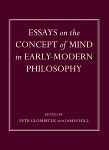 Petr Glombíček & James Hill (eds.)
Petr Glombíček & James Hill (eds.)
Essays on the Concept of Mind in Early-Modern Philosophy
(Cambridge Scholars 2010)
The essays in this volume discuss different aspects of the philosophical theories of mind put forth in the century and a half following Descartes’ Meditations of 1641. Included are two essays on Descartes’ own thinking and examinations of the thought of Spinoza, Malebranche, Locke, Berkeley, Reid and the Cambridge Platonists, among others. See Cambridge Scholars | Google
 Campbell, O’Rourke & Silverstein (eds.)
Campbell, O’Rourke & Silverstein (eds.)
Time and Identity
(MIT 2010)
The concepts of time and identity seem at once unproblematic yet frustratingly difficult. The contributors to this volume first consider time and then turn to identity, focusing on the metaphysical connections between the two, with a special emphasis on personal identity. The volume concludes with essays on the metaphysics of death. See MIT | Amazon | Google
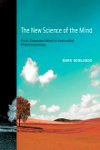 Mark Rowlands
Mark Rowlands
The New Science of the Mind: From Extended Mind to Embodied Phenomenology
(MIT 2010)
There is a new way of thinking about the mind that does not locate mental processes exclusively “in the head.” Rowlands explains that this is actually an old way of thinking in a new form. He clarifies the ideas of embodied, embedded, enacted and extended mind, and develops a unified philosophical account that some think will be the basis of a new science of the mind. See MIT | Amazon | Google
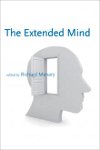 Richard Menary (ed.)
Richard Menary (ed.)
The Extended Mind
(MIT 2010)
Where does the mind stop and the rest of the world begin? In their 1998 paper ‘The Extended Mind,’ Andy Clark and David Chalmers posed this question and answered it provocatively: cognitive processes “ain’t all in the head.” This volume brings together for the first time the best responses to Clark and Chalmers’s bold proposal. See MIT | Amazon | Google
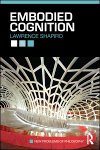 Lawrence Shapiro
Lawrence Shapiro
Embodied Cognition
(Routledge 2010)
Shapiro sets out the central debates surrounding embodied cognition and its challenge to standard cognitive science, assessing the work of key figures like Lakoff, Noë, Clark, and Glenberg. Topics covered include dynamic systems theory, ecological psychology, robotics, and connectionism, over and above core issues in the philosophy of mind. See Routledge | Amazon | Google
 Basile, Kiverstein, Phemister (eds.)
Basile, Kiverstein, Phemister (eds.)
The Metaphysics of Consciousness
(Cambridge 2010)
What is consciousness? What is its place in nature? This new collection of essays by leading philosophers of mind and historians of philosophy features examinations not solely of mainstream physicalist doctrines, but also of largely neglected positions like Cartesian dualism, idealism, and panpsychism. See Cambridge | Amazon | Google
 Siderits, Thompson, Zahavi (eds.)
Siderits, Thompson, Zahavi (eds.)
Self, No Self?: Perspectives from Analytical, Phenomenological, and Indian Traditions
(Oxford 2010)
The nature and reality of the self has been central to Indian and Tibetan philosophical traditions for more than two thousand years. In the first volume of its kind, scholars of these traditions now join forces with Western philosophers of mind and phenomenologists to explore issues about consciousness and selfhood from these multiple perspectives. See Oxford | Amazon | Google
 Paul L. Nunez
Paul L. Nunez
Brain, Mind, and the Structure of Reality
(Oxford 2010)
Nunez discusses the possibility of deep connections between relativity, quantum mechanics, thermodynamics, and consciousness: all entities involved with fundamental information barriers. He finds possible new links in this nested web of human knowledge that may tell us something new about the nature and origins of consciousness. See Oxford | Amazon | Google
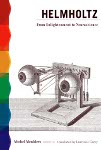 Michel Meulders
Michel Meulders
Helmholtz: From Enlightenment to Neuroscience
(MIT 2010)
Hermann von Helmholtz was one of most remarkable figures of the nineteenth century. He made significant contributions to the study of vision and perception and was influential in the painting, music and literature of the time. This book describes his scientific studies, analyzes them in the context of the philosophy of the period, and gauges his influence on today’s neuroscience. See MIT | Google
 Tim Bayne
Tim Bayne
The Unity of Consciousness
(Oxford 2010)
Bayne draws on philosophy, psychology, and neuroscience in defence of the claim that consciousness is unified. He starts by explaining what this means, then considers a variety of cases in which such unity is said to break down, arguing, in each case, that consciousness remains unified. Finally, he explores the implications of all this for theories of consciousness. See Oxford | Google
 Raffaella de Rosa
Raffaella de Rosa
Descartes and the Puzzle of Sensory Representation
(Oxford 2010)
Much has been written on Descartes’ theory of mind and ideas but no systematic study of his theory of sensory representation currently exists. This book attempts to fill this gap. It argues that Cartesian sensations are representational and not mere qualia, and provides a solution to the problem of sensory misrepresentation within Descartes’ internalist theory of ideas. See Oxford | Google | Amazon
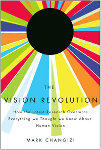 Mark Changizi
Mark Changizi
The Vision Revolution
(BenBella 2010)
Changizi addresses four questions about human vision—Why do we see in color? Why do our eyes face forward? Why do we see illusions? Why does reading come so naturally to us?—and provides engaging explanations of these abilities for the reader. He overturns existing beliefs about sight by drawing from the field’s most recent research. See BenBella | Google | Amazon
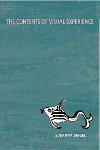 Susanna Siegel
Susanna Siegel
The Contents of Visual Experience
(Oxford 2010)
What do we see? We are visually conscious of colors and shapes but are we also visually conscious of complex properties such as being John Malkovich? In this book, Siegel develops a framework for understanding the contents of visual experience and argues that these contents involve all sorts of complex properties. See Oxford | Google | Amazon
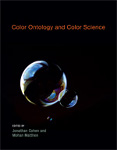 J. Cohen & M. Matthen (eds.)
J. Cohen & M. Matthen (eds.)
Color Ontology and Color Science
(MIT 2010)
Philosophers and scientists have long speculated about color. Democritus thought color to be “conventional” and not real. Galileo thought that it was an erroneous projection of our sensations onto the world. More recently, philosophers have enriched the debate by aligning color science with the methods of analytic philosophy. See MIT Press | Google | Amazon
 William Fish
William Fish
Philosophy of Perception: A Contemporary Introduction (Routledge 2010)
William Fish sets out the major theories of perception in this book, along with their motivations and problems. While providing historical background to debates in the field, his comprehensive overview focuses on recent presentations and defenses of the different theories, looking beyond visual perception to the other senses. See Routledge | Google | Amazon
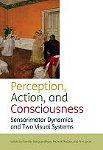 Gangopadhyay, Madary, Spicer (eds.)
Gangopadhyay, Madary, Spicer (eds.)
Perception, Action, and Consciousness
(Oxford 2010)
This book explores the relationship between perception and action from a variety of perspectives. It incorporates contributions from leading philosophers, psychologists, neuroscientists, and an artificial intelligence theorist. A key focus is the debate between action-oriented theories of visual perception and the dual-visual systems hypothesis. See Oxford | Google | Amazon
 David Chalmers
David Chalmers
The Character of Consciousness
(Oxford 2010)
What is consciousness? How does the subjective character of consciousness fit into an objective world? How can there be a science of consciousness? In this sequel to his groundbreaking and controversial 1996 book, The Conscious Mind, David Chalmers develops a unified framework that addresses these questions and many others. See Oxford U Press | Google | Amazon
 Bence Nanay (ed.)
Bence Nanay (ed.)
Perceiving the World
(Oxford 2010)
Perception has recently become a major area of philosophical interest. This volume of eleven original essays provides a representative sample of new approaches in the philosophy of perception. The essays also make connections between perception and other philosophical areas like epistemology, metaphysics, and philosophy of action. See Google | Oxford U Press
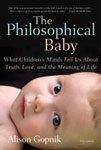 Alison Gopnik
Alison Gopnik
The Philosophical Baby
(Picador 2010)
Babies have long been excluded from the philosophical literature but Gopnik argues that they are more conscious than grownups. While adults often function on autopilot, babies, with their malleable, complex minds are enthralled by every nuance of their exciting and novel environment. See Picador | Amazon | Google Books | New York Times review | Scientific American review | Barnes & Noble review | Guardian review | Gopnik on YouTube
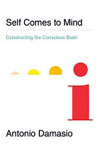 Antonio Damasio
Antonio Damasio
Self Comes to Mind: Constructing the Conscious Brain
(Pantheon 2010)
In this book, Damasio goes against the long-standing idea that consciousness is somehow separate from the body and presents compelling new scientific evidence that consciousness—what we think of as a mind with a self—is a biological process created by a living organism. See Pantheon with videos and other links | Amazon | Google Books | A. C. Grayling review | Ned Block review
 R. C. Koons & George Bealer (eds.)
R. C. Koons & George Bealer (eds.)
The Waning of Materialism
(Oxford 2010)
Twenty-three philosophers examine the doctrine of materialism and find it wanting. The case against it comprises arguments from conscious experience, the unity and identity of the person, intentionality, mental causation, and knowledge. A wide variety of alternatives to the materialist conception of the person also receive new attention. See Oxford | Amazon | Google
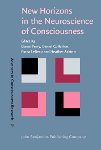 Elaine Perry et al. (eds.)
Elaine Perry et al. (eds.)
New Horizons in the Neuroscience of Consciousness
(John Benjamins 2010)
How can consciousness can be explained in terms of brain activity? This volume encourages neuroscientists to think ‘outside the box’ and beyond the boundary of current concepts of consciousness. The result is a fascinating cornucopia of new ideas, based on the fundamentals of neurobiology, psychology, psychiatry and therapy. See John Benjamins | Google
 Robert B. Pippin
Robert B. Pippin
Hegel on Self-Consciousness: Desire and Death in the Phenomenology of Spirit
(Princeton 2010)
In the Phenomenology of Spirit, Hegel makes the disarming assertions that “self-consciousness is desire itself” and that it attains “satisfaction” only in another self-consciousness. Pippin presents a new interpretation of these revolutionary claims, tracing their roots to Kant’s philosophy and demonstrating their relevance to contemporary thought. See Princeton | Amazon | Google

Matter and Mind: A Philosophical Inquiry
(Springer 2010)
Bunge argues that modern natural science has tacitly adopted the materialist view that the universe is composed exclusively of concrete things and that the social and biosocial sciences should follow suit. This is not to deny the existence of mental processes. Consciousness, qualia, feelings, and even free will, are real and within the reach of scientific research. See Springer | Amazon | Google

Do Fish Feel Pain?
(Oxford 2010)
Biologist Victoria Braithwaite explores the question of fish pain and fish suffering, explaining what science can now tell us about fish behavior, and examining the related ethical questions about how we should treat these animals. She concludes that scientific evidence suggests that we should widen to fish the protection currently given to birds and animals. See Amazon | Google

Consciousness: An Introduction
(Routledge 2010, second edition)
Blackmore’s ground-breaking 2003 textbook was the first to bring together all the major theories of consciousness, from those based on neuroscience to quantum theory to Eastern philosophy. This new edition includes the latest developments in neuroscience, brain-scanning techniques, artificial consciousness and robotics. See Routledge | Amazon | Google

Essays on the Concept of Mind in Early-Modern Philosophy
(Cambridge Scholars 2010)
The essays in this volume discuss different aspects of the philosophical theories of mind put forth in the century and a half following Descartes’ Meditations of 1641. Included are two essays on Descartes’ own thinking and examinations of the thought of Spinoza, Malebranche, Locke, Berkeley, Reid and the Cambridge Platonists, among others. See Cambridge Scholars | Google

Time and Identity
(MIT 2010)

The concepts of time and identity seem at once unproblematic yet frustratingly difficult. The contributors to this volume first consider time and then turn to identity, focusing on the metaphysical connections between the two, with a special emphasis on personal identity. The volume concludes with essays on the metaphysics of death. See MIT | Amazon | Google

The New Science of the Mind: From Extended Mind to Embodied Phenomenology
(MIT 2010)

There is a new way of thinking about the mind that does not locate mental processes exclusively “in the head.” Rowlands explains that this is actually an old way of thinking in a new form. He clarifies the ideas of embodied, embedded, enacted and extended mind, and develops a unified philosophical account that some think will be the basis of a new science of the mind. See MIT | Amazon | Google

The Extended Mind
(MIT 2010)

Where does the mind stop and the rest of the world begin? In their 1998 paper ‘The Extended Mind,’ Andy Clark and David Chalmers posed this question and answered it provocatively: cognitive processes “ain’t all in the head.” This volume brings together for the first time the best responses to Clark and Chalmers’s bold proposal. See MIT | Amazon | Google

Embodied Cognition
(Routledge 2010)
Shapiro sets out the central debates surrounding embodied cognition and its challenge to standard cognitive science, assessing the work of key figures like Lakoff, Noë, Clark, and Glenberg. Topics covered include dynamic systems theory, ecological psychology, robotics, and connectionism, over and above core issues in the philosophy of mind. See Routledge | Amazon | Google

The Metaphysics of Consciousness
(Cambridge 2010)
What is consciousness? What is its place in nature? This new collection of essays by leading philosophers of mind and historians of philosophy features examinations not solely of mainstream physicalist doctrines, but also of largely neglected positions like Cartesian dualism, idealism, and panpsychism. See Cambridge | Amazon | Google

Self, No Self?: Perspectives from Analytical, Phenomenological, and Indian Traditions
(Oxford 2010)
The nature and reality of the self has been central to Indian and Tibetan philosophical traditions for more than two thousand years. In the first volume of its kind, scholars of these traditions now join forces with Western philosophers of mind and phenomenologists to explore issues about consciousness and selfhood from these multiple perspectives. See Oxford | Amazon | Google

Brain, Mind, and the Structure of Reality
(Oxford 2010)
Nunez discusses the possibility of deep connections between relativity, quantum mechanics, thermodynamics, and consciousness: all entities involved with fundamental information barriers. He finds possible new links in this nested web of human knowledge that may tell us something new about the nature and origins of consciousness. See Oxford | Amazon | Google

Helmholtz: From Enlightenment to Neuroscience
(MIT 2010)

Hermann von Helmholtz was one of most remarkable figures of the nineteenth century. He made significant contributions to the study of vision and perception and was influential in the painting, music and literature of the time. This book describes his scientific studies, analyzes them in the context of the philosophy of the period, and gauges his influence on today’s neuroscience. See MIT | Google

The Unity of Consciousness
(Oxford 2010)
Bayne draws on philosophy, psychology, and neuroscience in defence of the claim that consciousness is unified. He starts by explaining what this means, then considers a variety of cases in which such unity is said to break down, arguing, in each case, that consciousness remains unified. Finally, he explores the implications of all this for theories of consciousness. See Oxford | Google

Descartes and the Puzzle of Sensory Representation
(Oxford 2010)
Much has been written on Descartes’ theory of mind and ideas but no systematic study of his theory of sensory representation currently exists. This book attempts to fill this gap. It argues that Cartesian sensations are representational and not mere qualia, and provides a solution to the problem of sensory misrepresentation within Descartes’ internalist theory of ideas. See Oxford | Google | Amazon

The Vision Revolution
(BenBella 2010)
Changizi addresses four questions about human vision—Why do we see in color? Why do our eyes face forward? Why do we see illusions? Why does reading come so naturally to us?—and provides engaging explanations of these abilities for the reader. He overturns existing beliefs about sight by drawing from the field’s most recent research. See BenBella | Google | Amazon

The Contents of Visual Experience
(Oxford 2010)
What do we see? We are visually conscious of colors and shapes but are we also visually conscious of complex properties such as being John Malkovich? In this book, Siegel develops a framework for understanding the contents of visual experience and argues that these contents involve all sorts of complex properties. See Oxford | Google | Amazon

Color Ontology and Color Science
(MIT 2010)

Philosophers and scientists have long speculated about color. Democritus thought color to be “conventional” and not real. Galileo thought that it was an erroneous projection of our sensations onto the world. More recently, philosophers have enriched the debate by aligning color science with the methods of analytic philosophy. See MIT Press | Google | Amazon

Philosophy of Perception: A Contemporary Introduction (Routledge 2010)

William Fish sets out the major theories of perception in this book, along with their motivations and problems. While providing historical background to debates in the field, his comprehensive overview focuses on recent presentations and defenses of the different theories, looking beyond visual perception to the other senses. See Routledge | Google | Amazon

Perception, Action, and Consciousness
(Oxford 2010)
This book explores the relationship between perception and action from a variety of perspectives. It incorporates contributions from leading philosophers, psychologists, neuroscientists, and an artificial intelligence theorist. A key focus is the debate between action-oriented theories of visual perception and the dual-visual systems hypothesis. See Oxford | Google | Amazon

The Character of Consciousness
(Oxford 2010)

What is consciousness? How does the subjective character of consciousness fit into an objective world? How can there be a science of consciousness? In this sequel to his groundbreaking and controversial 1996 book, The Conscious Mind, David Chalmers develops a unified framework that addresses these questions and many others. See Oxford U Press | Google | Amazon

Perceiving the World
(Oxford 2010)

Perception has recently become a major area of philosophical interest. This volume of eleven original essays provides a representative sample of new approaches in the philosophy of perception. The essays also make connections between perception and other philosophical areas like epistemology, metaphysics, and philosophy of action. See Google | Oxford U Press

The Philosophical Baby
(Picador 2010)
Babies have long been excluded from the philosophical literature but Gopnik argues that they are more conscious than grownups. While adults often function on autopilot, babies, with their malleable, complex minds are enthralled by every nuance of their exciting and novel environment. See Picador | Amazon | Google Books | New York Times review | Scientific American review | Barnes & Noble review | Guardian review | Gopnik on YouTube

Self Comes to Mind: Constructing the Conscious Brain
(Pantheon 2010)
In this book, Damasio goes against the long-standing idea that consciousness is somehow separate from the body and presents compelling new scientific evidence that consciousness—what we think of as a mind with a self—is a biological process created by a living organism. See Pantheon with videos and other links | Amazon | Google Books | A. C. Grayling review | Ned Block review

The Waning of Materialism
(Oxford 2010)

Twenty-three philosophers examine the doctrine of materialism and find it wanting. The case against it comprises arguments from conscious experience, the unity and identity of the person, intentionality, mental causation, and knowledge. A wide variety of alternatives to the materialist conception of the person also receive new attention. See Oxford | Amazon | Google

New Horizons in the Neuroscience of Consciousness
(John Benjamins 2010)
How can consciousness can be explained in terms of brain activity? This volume encourages neuroscientists to think ‘outside the box’ and beyond the boundary of current concepts of consciousness. The result is a fascinating cornucopia of new ideas, based on the fundamentals of neurobiology, psychology, psychiatry and therapy. See John Benjamins | Google

Hegel on Self-Consciousness: Desire and Death in the Phenomenology of Spirit
(Princeton 2010)
In the Phenomenology of Spirit, Hegel makes the disarming assertions that “self-consciousness is desire itself” and that it attains “satisfaction” only in another self-consciousness. Pippin presents a new interpretation of these revolutionary claims, tracing their roots to Kant’s philosophy and demonstrating their relevance to contemporary thought. See Princeton | Amazon | Google
Menu
 What’s a logical paradox?
What’s a logical paradox? Achilles & the tortoise
Achilles & the tortoise The surprise exam
The surprise exam Newcomb’s problem
Newcomb’s problem Newcomb’s problem (sassy version)
Newcomb’s problem (sassy version) Seeing and being
Seeing and being Logic test!
Logic test! Philosophers say the strangest things
Philosophers say the strangest things Favourite puzzles
Favourite puzzles Books on consciousness
Books on consciousness Philosophy videos
Philosophy videos Phinteresting
Phinteresting Philosopher biographies
Philosopher biographies Philosopher birthdays
Philosopher birthdays Draft
Draftbarang 2009-2024  wayback machine
wayback machine
 wayback machine
wayback machine